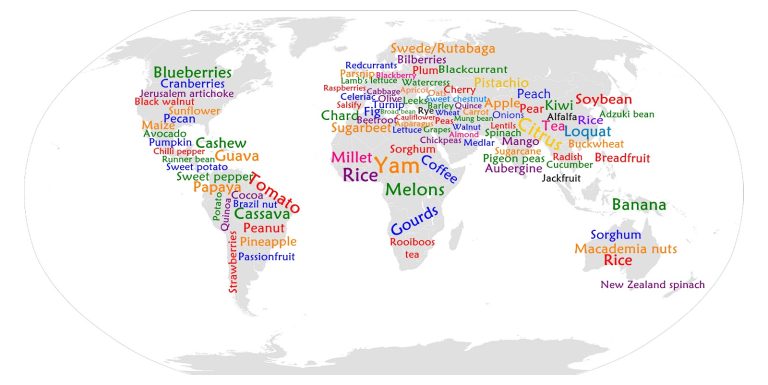It might not be obvious how to use permaculture in your daily life, but this article will show you how.
by Elena Pollen

Permaculture is often defined by its twelve principles. Being a compound of permanent-agriculture, it makes sense that these principles are very land focused.
But in these changing times, it seems more important than ever to expand these guidelines to anyone wishing to make a positive difference in their day to day life. Be that in a city, suburban setting or rurally.
1. Observe & Interact

Before we act, we must observe. Try to answer some of the following questions before doing anything else. Acting with intention and thought creates more sustainable results.
- What do I do for fun?
- What do I do for work?
- What am I happy about in my life?
- What could be improved?
- How could my life be more sustainable and fulfilling?
Once you have outlined who you are and where you want to be, then is the moment to start moving towards those goals.
2. Catch & Store Energy

Think about where you put your energy on a day to day basis. Are there outlets which drain a lot of your energy which you could give less to? Are there things you gain energy from which you do not pay enough attention to?
Don’t be afraid to step away from things that drain your energy, and try to challenge yourself to spend more time doing things that you love.
3. Obtain A Yield

In urban lifestyles, we generally buy most things that we consume. Maybe you do not have a garden or a way to grow food, but is there a way in which you can get in touch with your creative side to produce something of your own?
Slower, less energy-reliant entertainment production could include: reading, cooking, fermenting, writing, walking, being outside, sewing, drawing, making music, connecting with real people in real life, constructing, fixing things.
4. Apply Self-Regulation & Accept Feedback

We’re our own worst enemies. The ego’s desire to always be right is usually not helpful to our personal growth and enjoyment of the world. Many of us can be bristly towards criticism, and dislike challenging our existing views.
Conversely, behaving in the opposite manner is a lot more conducive to self improvement and wellbeing. Listening to criticism does not necessarily mean totally agreeing with it, but taking it on board and accepting it gratefully as an opportunity to learn and improve oneself.
Monitor yourself and be open to making mistakes and learning from them.
5. Use & Value Renewable Resources & Services

Use public transport, cycle, study in the library rather than at home to save heating costs.
As obvious as it sounds, investing in good quality blankets and warm clothing can stop you from putting the heating on when it’s not necessary.
Try to assess if there are small changes you could make to your existing lifestyle that you may have forgotten about or neglected.
6. Produce No Waste

Even if you can’t totally avoid packaging, by reducing plastic consumption you are making a positive impact.
Bringing reusable bags to supermarkets and shops to take food home in, getting stickers directly on loose fruit and veg. There are lots of websites offering plastic-free solutions for household items like toilet roll, washing up brushes, soap, stick deodorant. Charity shops are a great way to support the local community and find second hand goods.
If something breaks, try to fix it or use it in a different way before throwing it in the bin. You also get the personal bonus of having to take out the trash less.
7. Design From Patterns To Details

What cycles end up repeating themselves within your life? Is there a sign that something needs to be changed in order to produce a different outcome?
Perhaps it’s time to create a new pattern, in order to get the results you want. Try to recognise what patterns emerge in your life that can serve to benefit you.
8. Integrate Rather Than Segregate

Combine rather than compartmentalise.
If you spend your life working, your work is therefore your life. We must find a way to recognise it as the same thing. Maybe at the moment you’re not passionate about your job, but treating it as a real part of your life can change the way you behave within it, maintaining a positive mindset.
If you feel you can’t be happy at work and are considering changing careers, dream big — think about finding something you love that keeps you healthy, entertains you, challenges you and you can get paid for.
9. Use Small & Slow Solutions

Start patiently and work towards your dream, rather than standing still and expecting it to arrive suddenly. If your dream is to grow more of your own food, for example, don’t tell yourself that you can’t because you haven’t got a garden. Grow some windowsill herbs and think about working gradually to what you want.
Journeying is the beauty of life.
10. Use & Value Diversity

Try to take advantage of all the multidimensional opportunities that exist where you live. Instead of sticking to the same routine, try participating in something local that you have never done before.
Observe and evaluate the existing opportunities in your region which you may have previously overlooked or written off. Community is a great way to feel more connected to the environment you’re in.
11. Use Edges & Value The Marginal

Are there areas of neglect within your life or in your surroundings which you could do something to uplift?
In a home setting this could be as trivial as clearing out an old cupboard to make way for a new project space.
Outside this could be taking a look at the social problems which affect your neighbourhood and assessing whether you can help. Volunteering with the elderly, the homeless, or going into schools can have an amazing impact on the wellbeing of others.
Focusing on what you can do to improve your community will also have a knock on effect with the community itself, generating awareness and motivation for positive change.
12. Creatively Use & Respond To Change

What do you usually do when something goes wrong? Do you get upset and frustrated/wish it hadn’t happened?
Permaculture teaches us to respond to crises as opportunity. Instead of treating change as a negative thing, we can see how to incorporate and accept it into our lives as a positive. See change as an open door.



